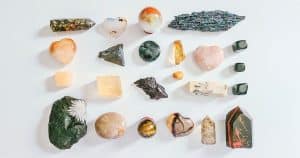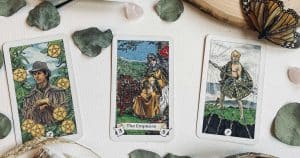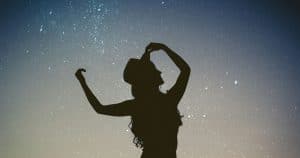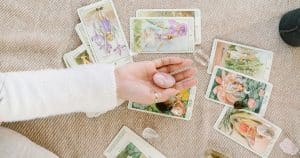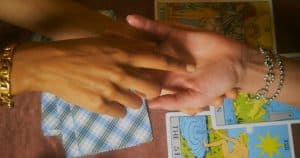As any devoted Harry Potter fan can no doubt tell you, “Amortentia” is the most powerful love potion on the planet. Literary “muggles,” on the other hand, will likely cite more classic examples of magical love elixirs at work, as in Shakespeare’s A Midsummer Night’s Dream, in which Titania (Queen of the Fairies) is unknowingly administered a love potion as she sleeps, that’s intended to revert her affections to her estranged husband, Oberon. Unfortunately for her, the spell is such that she must fall in love with the first person she sets eyes on when she wakes–and as a result, Titania accidentally falls head over heels for Bottom (a dimwitted carpenter temporarily sporting the head of an ass, thanks to yet another magical spell). Meanwhile, true lovers Hermia and Lysander are parted when Robin Goodfellow “pucks things up” again by planting the same concoction on sleeping Lysander’s lids, so when he wakes, the first person he locks eyes with happens to be his ex-girlfriend, Helena. This being Shakespeare, of course, comedy ensues–but by the last act, it’s “all’s well that ends well” for the lovers concerned.
But perhaps the most famous of literary lovers done in by a love potion were the ill-starred Tristan and Isolde. This tale is of Celtic origin, and chronicles the tragedy of a young couple already smitten, who drink a love potion that throws them into the deepest throes of passion–which might have been alright, except for the inconvenient fact that Isolde is already engaged to be married to someone else. And that someone else is Tristan’s uncle, King Mark, to whom Tristan has been entrusted the task of delivering the now otherwise besotted bride-to-be. (As you can surmise, this narrative ends badly.)
Real World Applications
While magic potions are predominantly the stuff of fictional tales involving sorcerers, witches, and otherworldly practitioners of the arcane arts, there are also people outside of literature who believe in the potency of love spells. For thousands of years, and in many places around the world, especially in cultures informed by strong tribal traditions, the use of spells has long been and continues to be a common occurrence[1].
In South Africa, for example, a form of tribal medicine called “muti” (from the Zulu word for “tree”) continues to be practiced, even in the backlash of some overwhelmingly bad press that suggests muti involves the sacrifice of small children for the specific purpose of using their body parts as spell ingredients. As farfetched as that sounds, there have been a few extreme cases of such murders cited, however, most muti is much more benign[2].
Love Potions: The Science & History
In a historical context, love potions were part of the tradition of many ancient civilizations, including China, India, Greece, Rome, and Egypt[3]. Some of these spells were thought to have been worked with the help of occult intervention–however, many were considered of a more medicinal nature. There is certainly a distinction to be made between inducing romance via magic influence, or through more corporeal means.
Aphrodisiacs, considered a form of love potion by many, are named for the Greek Goddess of Love, Aphrodite. These foods are reputed to hasten the onset and enhance the enjoyment of romance, but magic has little or nothing to do with their power.
In fact, science suggests that certain substances we ingest or inhale actually cause chemical changes in the human body that simply make us more receptive to amorous inclinations, by releasing certain naturally-occurring neurotransmitters, such as endorphins–which reduce stress and can lead to feelings of euphoria, and serotonin–which regulates mood. In addition to orally ingested aphrodisiacs, there are also inhaled substances called pheromones that are said to work their own powerful scientifically-based magic on our sensory receptors to induce attraction.
Love Potions and Karma
Whether you like your love potion laced with a little magic, or would prefer to take a more “muggly” approach, there are certain real-world ethical implications inherent in the use of love potions that one should always take into account. Aphrodisiacs? They’re fair game, as long as the person you are serving them to isn’t allergic to any of their ingredients (shellfish and strawberries may be Cupid’s friend, but many people suffer highly adverse reactions to them)–so have at it.
However, you should never, for any reason, surreptitiously introduce a love potion into someone else’s food. Besides the potential legal ramifications, depending on the substance, some chemicals—even ones you might consider “harmless”–have the potential to cause your intended lover physical harm. To keep your karma clean, it’s much better to simply stick with love inducements that don’t involve any form of physical interference with your potential paramour. Your own charms are enough to find that right person.
If you’re looking to attract a certain someone to put under your love spell, why not let a KEEN romantic advisor help you concoct a sure-fire formula for romantic success?
1. http://www.theepochtimes.com/n3/488806-valentines-day-2014-10-medieval-love-potions-people-actually-used-you-may-be-disgusted/
2. http://www.iol.co.za/news/south-africa/muti-killings-is-a-way-of-life-in-rural-areas-1.470603#.VY2kuflVhBd
3. https://www.phactual.com/love-potions-14-of-the-best-magical-mixtures/



